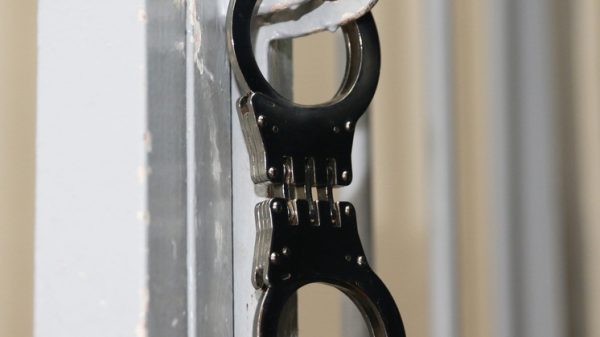 Universal Music Group, led by Sir Lucian Grange, has raised concerns about the use of AI leading to copyright infringement. Credit: Jesse Grant/Getty Images North America
Universal Music Group, led by Sir Lucian Grange, has raised concerns about the use of AI leading to copyright infringement. Credit: Jesse Grant/Getty Images North America
Government forced to crack down on artificial intelligence (AI) music amid warning that the UK risks becoming «less committed to basic property rights than the Chinese Communist Party.»
Senior music industry figures have lobbied Downing Street for tighter regulations on the nascent technology, warning that Britain's approach to regulation is lagging behind China's.
Executives fear artists' earnings will be eroded by AI-generated songs that replicate their melodies and voices.
Sir Lucian Grange, UK head of Universal Music, which represents artists including Taylor Swift, expressed concern in a meeting with the chancellor earlier this month.
Other industry bosses held meetings with ministers and officials in Downing Street.
Jamie Njoku-Goodwin, chief executive of UK Music, said it was essential that the government act quickly.
He pointed to a draft measure unveiled in China last month that requires AI makers to respect intellectual property, request permission to use content, and exclude infringing content.
The music director said: «do if the UK chose a regulatory framework that was less committed to basic property rights than the Chinese Communist Party.»
The industry is concerned that artificial intelligence could lead to widespread copyright infringement. right
Last month, an AI-generated song imitating Drake and The Weeknd hit over 20 million streams across platforms including Spotify, TikTok and Twitter.
 Streaming services were forced to remove Heart On My Sleeve, which clones the voices of Drake and The Weeknd, last month. Photo: Ollie Millington/WireImage
Streaming services were forced to remove Heart On My Sleeve, which clones the voices of Drake and The Weeknd, last month. Photo: Ollie Millington/WireImage
Streaming services were forced to remove Heart On My Sleeve, which cloned the voices of two top-selling artists, after Universal said the song «violates both our agreements and copyright law.»
Universal has previously warned of «widespread and lasting harm» to artists and asked streaming services to block AI producers from extracting music and lyrics from copyrighted songs.
Record labels are calling for tougher laws to ensure musicians have intellectual property is protected for both songs uploaded to the AI software and songs created with this technology.
Major record label lawyers are expected to have begun a «deep dive» into existing legislation to see how it can be updated.
Sophie Jones, Acting Executive Director of BPI, who represents record labels, said: «Music and technologies have a long and successful history together, and AI clearly has a huge potential to support the creative process of artists.
“But there are also significant risks for creators and consumers if we don't get an approach right now: most importantly, we all need to recognize that human skill is in the making of music and that rights must be respected.
“Performers and rights holders must maintain control over when and how their music is used to train AI, and AI developers must obtain prior authorization and appropriate compensation for such use, and be fully transparent about the use content. .
“Through collaboration, music and technology can work together to enable creativity and AI to thrive.”
Isn't AI advancing too fast?
The industry also wants tech giants like Spotify and YouTube to be forced to label any AI-generated songs on their platforms.
The upcoming EU AI law is expected to pave the way for future regulation, and the music industry is closely monitoring progress for signs of how artists' intellectual property will be treated.
At last week's G7 summit, the prime minister Rishi Sunak insisted that the UK would put up «fences» on the new technology.
A government spokesman said: «We want to come up with a balanced approach that will allow the AI and creative sectors to develop in partnership.
"The Intellectual Property Office will work with AI firms and rights holders to produce a Code of Practice and a guide on AI and copyright by summer.
«He supports our ambition to make the UK a global leader in AI research and innovation, while ensuring that our copyright system continues to encourage and reward investment in the UK's world-class creative industries"

























































Свежие комментарии